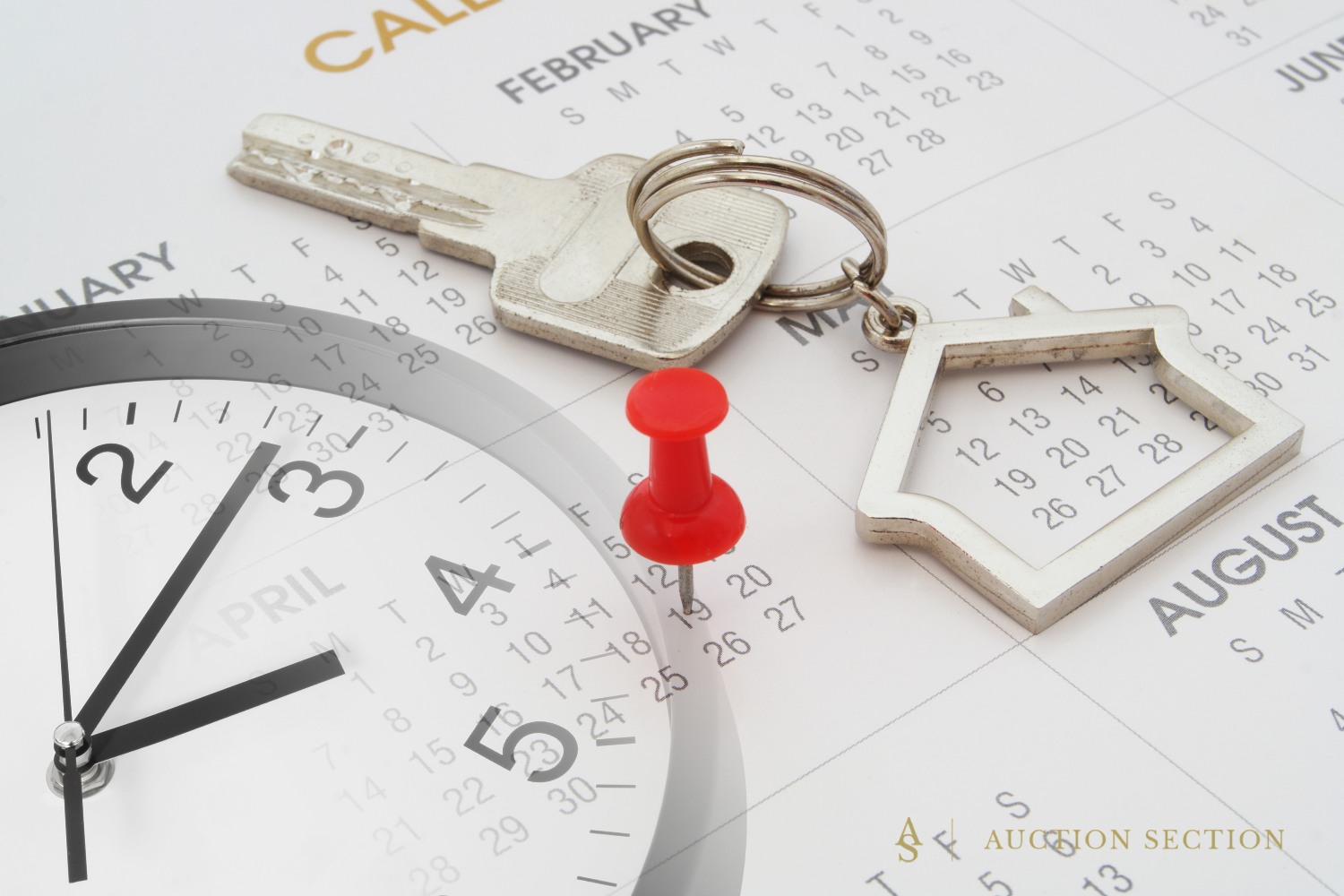
Real estate auctions can be a fast track to a great deal. They move quickly, attract serious buyers, and often offer homes below market value. But bidding without a plan can turn a good opportunity into a costly mistake. Knowing your limits before auction day is the key to staying in control.
A clear budget helps you avoid overpaying, especially in places like Texas, where competition can rise fast. Estimating the property’s value and understanding all the associated costs will help you set a firm budget ceiling.
This guide shows you how to calculate your maximum bid with confidence, enabling you to buy smart and stay focused when the pressure is on.
How Do I Estimate a Property’s Value for an Auction?
Setting a proper bid starts with knowing what the property is worth. That begins with identifying the after-repair value (ARV), or what the property could sell for once it’s fully repaired and market-ready.
What Are Comparable Sales and How Do I Find Them?
- Look for recent home sales within 90 days in the same area.
- Focus on properties with similar sizes, ages, layouts, and locations.
- Calculate the price per square foot, then take the average from at least five comparable homes.
- Multiply that average by the square footage of your target property to estimate fair market value.
How Can County Appraisal Districts Help?
Search the local county appraisal district website for the property. This provides the tax-assessed value, which serves as a baseline for comparison. Keep in mind that this amount may not reflect current market demand or condition, so always compare it against recent sales.
Are Online Valuation Tools Reliable?
Online estimates can be helpful for quick checks, but they are not always accurate. They often miss condition issues or hyper-local pricing trends. Use them to cross-reference, not as your only source of valuation.
Why Is Assessing Property Condition Important?
Properties sold at auction are typically offered as-is, which includes any underlying issues, with no guarantee of repair or cleanup from the seller.
How Do I Evaluate a Property’s Condition?
- Visit during open inspection periods, if allowed.
- Bring a licensed contractor to estimate costs.
- Use the photos and disclosures provided by the auctioneer to identify potential red flags.
- Check local permit records or past MLS data for signs of prior renovations or damage.
What If I Can’t Inspect the Property?
If access is not granted, plan for higher repair budgets. Without seeing the inside, you should assume that the flooring, systems, and finishes require significant work. Consult with a local investor or contractor familiar with the area to determine the general cost ranges for rehabilitation.
What Additional Costs Should I Factor Into My Bid?
Even if your bid wins, the final cost will include more than just the purchase price.
What Is a Buyer’s Premium?
This is an additional fee that the auction platform or agent applies to successful bidders. It ranges from 1% to 10% and is based on the property’s final sale price. For example, if you win with a bid of $100,000 and the premium is 5 percent, you’ll pay $105,000 in total.
Always check the property’s bidding terms. Some events waive this fee, but many do not.
What Other Costs Should I Consider?
- Closing costs: Title insurance, escrow services, and recording fees.
- Holding costs: Property taxes, utilities, lawn care, insurance.
- Legal costs: Especially if you’re dealing with a foreclosure or inherited liens.
- Repairs and rehab: Based on your contractor’s assessment or reserve funds.
How Do I Calculate My Maximum Bid?
A strategic bid should be based on what the property will be worth when finished, minus every cost you plan to incur.
The Maximum Bid Formula
Use this simple formula to help guide your decision:
Example
- ARV: $200,000
- Repairs: $30,000
- Other Costs: $5,000
- Profit Goal: $20,000
- Buyer’s Premium: 5 percent
Work it out:
($200,000−$30,000−$5,000−$20,000)÷1.05=$138,095
That is your ceiling. Going beyond this increases your financial risk.
How Do I Adjust for Investment Goals?
If you plan to flip the property, a return of 10 to 20 percent is standard. If you’re planning to live in the home or hold it for the long term, your goal may be cost savings rather than earnings. In that case, replace the profit figure in the formula with zero and make sure the total fits your long-term financial plan.
How Does Auction Type Affect My Bidding Strategy?
Understanding the type of auction you’re entering prevents surprises during the event.
What Are Absolute Auctions?
The property is awarded to the highest bidder regardless of price. There is no reserve or minimum bid. This can present great opportunities, but you must be disciplined. These auctions often attract aggressive bidding and can become highly competitive.
What Are Reserve and Minimum Bid Auctions?
If the auction has a reserve, the seller sets a hidden minimum they are willing to accept. If no bids meet that amount, the sale may not go through. If the auction uses a public minimum bid, that amount is listed; however, reaching it doesn’t always guarantee the property will sell.
In both formats, you can negotiate post-auction if bidding does not meet the seller’s goal.
What Texas-Specific Rules Should I Know About?
Texas auctions have a few unique guidelines you should understand before bidding.
Are There Payment Requirements in Texas?
Most auctions in Texas require a 10 percent deposit immediately after the auction ends. The remaining payment is typically due the following day. Some allow 48 hours, but many expect same-day payment via cashier’s check or direct wire.
Post-sale financing is not guaranteed. If you plan to use a lender, pre-approval and fast access to funds is essential.
How Do I Navigate Local Regulations?
Texas requires all auctioneers to be licensed and compliant with state law. This protects bidders from misrepresentation. Still, buyers must confirm whether the property has outstanding taxes, liens, or HOA fees. These often transfer with the home and become your responsibility.
You are strongly advised to work with a real estate attorney before committing funds, especially for foreclosure sales.
How Can I Avoid Overbidding?
Auctions often push people to bid emotionally. Before you know it, you’re chasing the win rather than the value.
Why Should I Set a Firm Budget?
Without a fixed number in place, it’s easy to go past your comfort zone. Set your ceiling using the maximum bid formula, and do not pass it for any reason. If bidding online, use proxy tools offered by the auction platform. These will auto-bid on your behalf up to your limit.
Can a Buyer’s Agent Help?
Working with an agent who understands auctions can streamline the process and help you avoid mistakes. The right agent can help you:
- Target viable properties.
- Analyze and compare pricing for your area.
- Keep your purchase aligned with your financial strategy.
- Step in for post-auction negotiations if needed.
Their local experience can make the difference between getting a deal and overpaying.
Frequently Asked Questions
To calculate your maximum bid, consider the property’s after-repair value (ARV), estimated repair costs, auction fees, and your desired profit margin. Subtract all costs from the ARV to determine the highest price you can afford without losing money.
Include the purchase price, buyer’s premium (if any), closing costs, inspection fees, property taxes, repair and renovation expenses, and any auction-related fees. Accounting for all costs ensures you don’t overbid.
Estimate ARV by researching recent sales of comparable properties (comps) in the same neighborhood that have been renovated. Adjust for differences in size, condition, and features to get an accurate market value after repairs.
Focus on structural integrity, roofing, plumbing, electrical systems, and any visible damage. Also, check for liens or legal issues. A thorough inspection helps identify potential repair costs and risks.
Common types include minimum bid auctions, absolute auctions, and reserve auctions. Minimum bid auctions start at a set price, absolute auctions sell to the highest bidder regardless of cost, and reserve auctions require a minimum seller-approved price. Understanding these helps tailor your bidding strategy.
Typically, a deposit of 5-10% of the winning bid is required immediately after the auction. The remaining balance is usually due within 30 days. It’s essential to have financing arranged in advance, as auction purchases are binding.
Prepare your auction bid with confidence.
Navigating Texas real estate auctions demands astute preparation. This guide has illuminated how to value properties accurately, account for all associated costs, and apply a robust maximum bid formula. Understanding distinct auction types and the state’s specific payment requirements transforms the process from daunting to definitive. By entering auction day with a clear strategy and a composed mindset, you are positioned not merely to participate but to prevail.
Ready to strategically expand your portfolio within the Texas market? Leverage these insights to make brilliant investments. Explore real estate auction services in Texas today and confidently secure your next opportunity across the Lone Star State.


